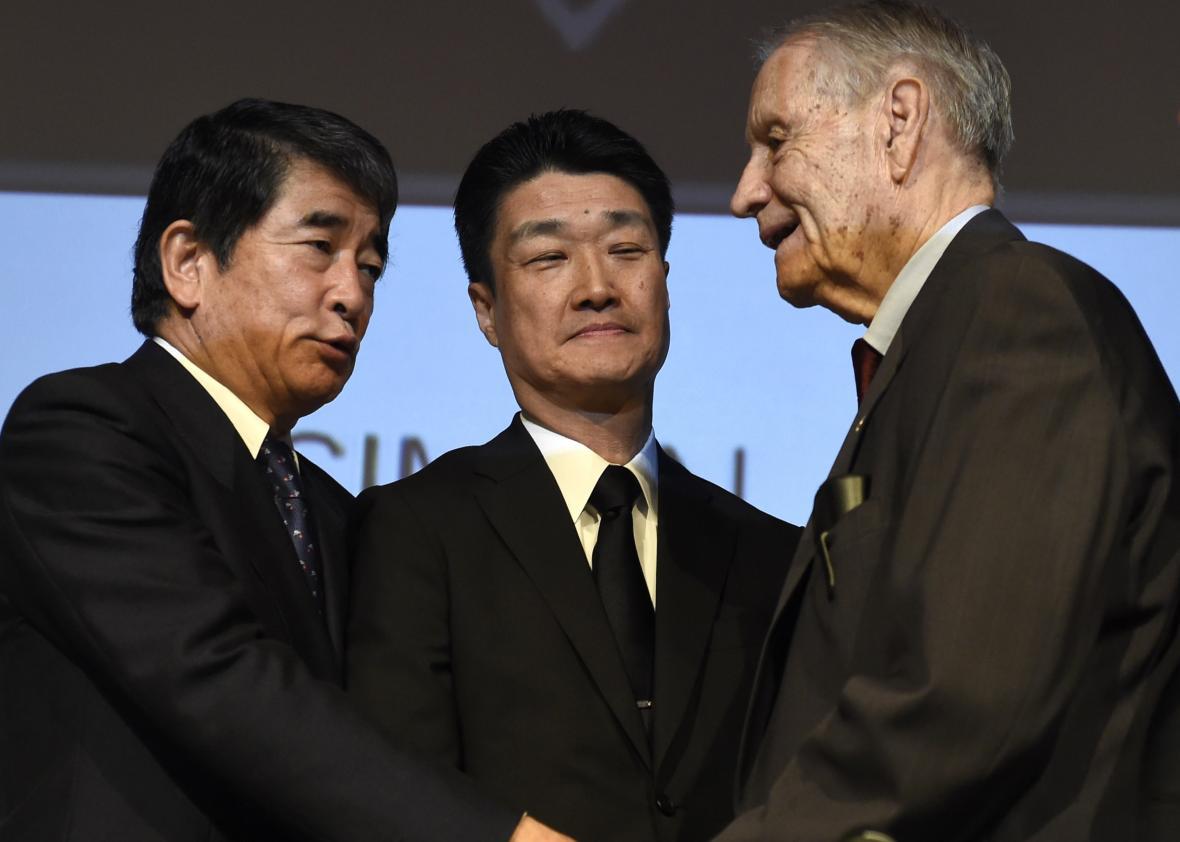The Mitsubishi Materials Corp. of Japan has formally apologized for forcing American prisoners of war to work in its mining operations during World War II, Reuters reports. The company, previously known as Mitsubishi Mining, admitted it used POWs from the United States and elsewhere as slave labor to extract minerals to assist in the Japanese war effort.
A total of 12,000 prisoners, including American, British, Chinese, and Filipino detainees, are estimated to have been held in forced labor camps by Japan’s government and private industries in the 1940s, according to Rabbi Abraham Cooper of the Simon Wiesenthal Center. Approximately 1,100 are thought to have died.
From Reuters:
Mitsubishi Materials Corporation’s predecessor ran four sites that at the time of liberation in 1945 held about 876 American prisoners of war. Twenty-seven Americans died in those camps, Asia Policy Point said.
While previous Japanese prime ministers have apologized for Japan’s aggression during World War II, private corporations have been less contrite.
On Sunday, [Mitsubishi Materials executive Hikaru] Kimura was flanked by Yukio Okamoto, a forced laborer in a copper mine and a special advisor to Japanese Prime Minister Shinzo Abe, along with an image of American and Japanese flags.
In the audience were other forced labor survivors and family members.
“This is a glorious day,” said 94-year-old veteran James Murphy, who survived working at Mitsubishi Mining’s Osarizawa Copper Mine and the infamous Bataan Death March in the Philippines. “For 70 years we wanted this.”
The apology was delivered during a ceremony held Sunday at the Wiesenthal Center’s Museum of Tolerance in Los Angeles. Murphy, believed to be one of only two survivors of the mines still living in the United States, was “visibly moved” by Kimura’s traditional bow of remorse and said that he’d “listened very carefully to Mr. Kimura’s statement of apology and found it very, very sincere, humble and revealing,” according to CNN.
Even as he magnanimously accepted Kimura’s apology, Murphy did not downplay the trauma he’d experienced in Japanese custody:
“It was slavery in every way: no food, no medicine, no clothing, no sanitation,” [Murphy] said, adding that it was all the more galling to know that Mitsubishi built fighter aircraft used against American forces.
The apology from Mitsubishi Materials, a member of a consortium of companies that includes auto manufacturer Mitsubishi Motors, was not accompanied by an offer of financial compensation for Murphy or other former prisoners, CNN notes. Other companies within the Mitsubishi Group are currently facing a lawsuit from hundreds of World War II-era Chinese POWs.
As the 70th anniversary of the end of World War II approaches in August, Japan is considering an expansion of its current military power, with lawmakers close to passing a bill pushed by Prime Minister Shinzo Abe to allow Japan’s army and navy to operate outside Japanese territory for the first time since the end of the war. Abe’s support for increased military mobility has provoked anti-“war bill” protests and record-low popularity ratings for the prime minister.
